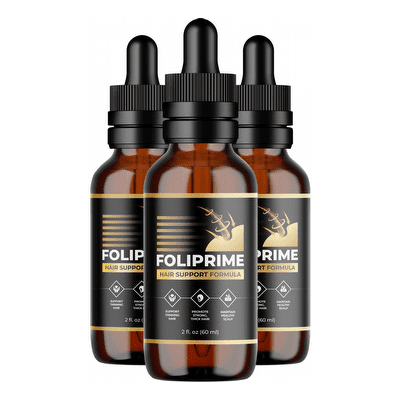Discover expert tips and tricks for healthy hair care at home. Learn how to maintain luscious locks with simple, effective techniques.
Healthy Hair, Happy You: Simple Tips for At-Home Hair Care
Healthy Hair, Happy You: 5 Easy At-Home Tips for Effective Hair Care
Healthy hair plays an integral part in our overall well-being. We often view our hair as an indicator of our general health; when it looks healthy and full of life, we feel healthier too. Achieved results boost confidence and self-expression allowing for increased self-expression making us more at home within ourselves.
Healthy hair allows us to express ourselves more freely by trying different styles and looks. This freedom can have a profound effect on both our self-esteem and how we present ourselves to the world, but damaged or unhealthy locks may alter how we view ourselves, leading to feelings of insecurity or discomfort.
Key Takeaways
Healthy hair is vital to overall well-being and confidence. Selecting products suitable to your hair type is crucial in maintaining its wellbeing, along with regular shampooing, conditioning and treatments to enhance its condition.
Diet and hydration are key elements of maintaining healthy hair. Because heat styling can damage hair, it is crucial to use protective measures and natural remedies for common issues with your locks.
Understanding Your Hair Type and Selecting Appropriate Products
Maintaining healthy hair requires knowing your individual hair type and texture. Different types require specific care regimens and products suited specifically for them.
Finding your hair type requires considering factors like thickness, density, porosity (how well your hair absorbs moisture), curl pattern and any specific concerns such as dandruff or oily scalp.
Once you understand your individual characteristics, you can select products tailored specifically to meet them. For instance, volumizing shampoos and conditioners may help add body and fullness. On the other hand, products designed to manage curly or frizzy locks could prove helpful in controlling unruly locks.
Basic At-Home Hair Care Steps: Shampooing and Conditioning
Shampoo is essential to maintaining healthy scalp health by eliminating dirt, build-up from styling products or environmental pollutants that could clog the strands over time and weigh them down over time.
Shampoo your hair carefully:
- Thoroughly moisten your locks before shampooing.
2) Scoop out an appropriate amount (about one quarter-sized dollop), lather it on gently, and lather up onto your scalp for maximum effect. 3) Rinse thoroughly to remove all shampoo.
Conditioning is equally as vital to ensure optimal hair health; it restores moisture, detangles the locks, and increases manageability. When conditioning:
1) Apply conditioner from mid-length to ends, avoiding roots.
2) Leave conditioner on for several minutes before rinsing thoroughly. 3 For added hydration, consider scheduling regular deep conditioning treatments.
Benefits of Regular Hair Masks and Treatments
Benefit Description for Moisturizing Hair
Regularly using masks and treatments on dry, brittle locks can help to soften them up, leaving it looking soft and sleek.
Strengthening Hair These treatments help strengthen and prevent breakage by providing essential nutrients and proteins directly into the scalp, strengthening it by strengthening its fibers from within and strengthening its base layers.
Improve Hair Texture Hair masks and treatments can be an excellent way to transform the texture of hair, making it more manageable and simpler to style. Reduce Frizz Frizz often results from dryness or damage in hair; regular treatments can help eliminate frizz to leave locks looking smoother and shinier.
Enhances natural hair color Using hair masks and treatments with ingredients known to boost natural hues can make your locks appear brighter and more vibrant, creating the impression of healthier locks. Prevents Hair Loss Regular treatments designed to nourish both hair and scalp may help stop loss while stimulating healthy hair growth, effectively helping stop loss altogether and promote new growth.
Deep conditioning treatments and hair masks are excellent ways to give your locks an extra dose of nourishment. By penetrating deep into the shaft and providing intense hydration while also repairing damage caused by heat styling or environmental factors, these treatments can bring intense nourishment directly to where it matters: your scalp.
Benefits of regular deep conditioning for hair include improved elasticity, reduced breakage, enhanced shine and overall healthier-looking locks. DIY hair mask recipes can be customized based on individual needs:
- For dry or damaged hair: Combine mashed avocado and honey into an intensely-nourishing mask. For oily or greasy locks: Lemon juice mixed with yogurt is an effective clarifying treatment to control oil production.
- For frizzy or unruly hair: Combine coconut milk with aloe vera gel to create a soothing mask to tame frizz.
How to Prevent Common Hair Issues: Breakage, Split Ends and Frizz
Breakage, split ends, and frizz are common hair issues; understanding their causes may help stop them in their tracks.
Breakage often results from excessive heat styling or harsh chemical treatments such as bleaching or perming, such as bleaching. To minimize breakage, utilize heat protective sprays before any application of heat such as flat irons or curling wands and restrict their usage to ensure breakage-free styling sessions. To protect against breakage: [1.] Limit heat styling tools like flat irons or curling wands [2,] Use heat protectant sprays before any attempt at heat styling
3) Avoid tight hairstyles that pull too tightly on the strands.
Split ends are caused by damage to the hair shaft caused by excessive heat, chemical treatments or rough handling. To reduce or avoid split ends: W. 1) Regularly trim your hair to eliminate existing split ends W. 2) To detangle wet hair gently use a wide-toothed comb or brush with soft bristles as you detangle wet locks
3) Avoid using harsh chemicals and over-processing your hair.
Frizz can often be caused by lack of moisture and humidity. To combat it, try these strategies to stop frizz: 1) Utilize products designed specifically to tame frizz. 2) Skip brushing dry hair as this can create friction that leads to further frizz formation. 3) Spritz some leave-in conditioner or anti-frizz serum on flyaways before combing through hair.
Diet and Nutrition Can Affect Hair Health
“What you eat affects what you are” holds true when it comes to hair health. Our diet plays an integral part in providing essential nourishment from within to our strands and maintaining their wellbeing.
Certain nutrients are essential for healthy hair growth, including protein, biotin, vitamins A and C, iron, zinc and omega-3 fatty acids. By including foods rich in these essential elements into your diet you can promote stronger and healthier-looking locks.
Protein-rich foods such as lean meats, eggs, legumes and nuts provide essential building blocks for strong hair strands. Egg yolks and nuts packed with biotin help promote overall scalp health; carrots promote sebum production that keeps scalp moist; while citrus fruit supplies vitamin C for collagen production essential to healthy hair growth.
Iron-rich foods such as spinach or red meat help deliver oxygen directly to the hair follicles while zinc found in oysters promotes cell division necessary for new hair growth. Furthermore, omega-3 fatty acids found in fish such as salmon help maintain scalp health by reducing inflammation.
Hydration for Healthy Hair Growth
Hydration is essential to our wellbeing; and its role in hair health should not be overlooked. Proper hydration ensures our strands get enough moisture to remain strong and supple.
Dehydration can leave your locks dry, brittle and prone to breakage and split ends. To stay hydrated throughout the day: * * * Drink plenty of water throughout the day ** Utilise moisturizing shampoos and conditioners.
- Utilise leave-in conditioners or hydrating sprays as extra layers of protection
Heat Styling Risks and Solutions to Safeguard Your Hair
Heat styling tools like flat irons, curling wands and blow dryers can cause considerable damage to our hair if used incorrectly or excessively.
Excessive heat can strip our locks of their natural oils, leading to dry and frail locks prone to breakage. To protect against heat damage: (1) Limit use of heat styling tools whenever possible. 2) Always use a heat protectant spray prior to applying any heat sources.
When appropriate, select lower heat settings on your styling tools.
Natural Remedies for Common Hair Issues: Oils, Herbs and Beyond
Nature provides us with many natural remedies for common hair concerns. These natural solutions can often be gentle yet effective at addressing specific concerns without resorting to harsh chemicals.
Coconut oil is known for its moisturizing properties and can be used both pre-shampoo treatment or leave-in conditioner. Rosemary oil has also been shown to promote hair growth when massaged into the scalp regularly, while aloe vera gel soothes an irritated scalp while supporting healthy follicles.
Apple cider vinegar rinses for clarifying buildup or chamomile tea rinses to enhance blonde highlights naturally are among many natural solutions that offer holistic approaches to caring for locks while limiting exposure to potentially harmful chemicals found in some commercial products.
How to Establish a Healthier Hair Routine: Tips for Consistency and Success
Establishing a regular haircare regimen is key for maintaining healthy locks. Here are some helpful tips that can help you create an effective routine:
- Determine how often to wash your hair depending on its type and lifestyle needs. Some individuals may require daily washes while others can go longer between washes. 2) Purchase products tailored specifically to your hair type.
1) Include deep conditioning treatments or hair masks into your weekly routine at least once. mes 5) To prevent damage due to heat styling, use lower temperature settings when styling with heat tools or go for heatless hairstyles whenever possible. When handling wet hair as this could result in breakage if not handled carefully enough – be gentle when handling wet locks!
By following these tips regularly, you can develop a healthy hair routine that promotes strong, shiny and manageable locks.
Embody Your Natural Hair for Happier and Healthier Living
Accepting our natural hair texture and accepting ourselves as we are is not solely about aesthetics; it is about being content in ourselves and feeling secure within ourselves. When our locks appear healthy-looking it positively impacts both happiness and wellbeing.
Caretaking our hair requires more than simply selecting appropriate products; it involves understanding our individual needs, providing sufficient nutrition and hydration, protecting from heat styling or harsh chemicals damage as well as safeguarding it against further breakage from excessive styling or harsh chemicals.
By including natural remedies into our routines and developing habits that prioritize the health of our locks, we can achieve beautiful tresses that showcase the best version of ourselves. Let’s embrace our natural beauty and celebrate the power of healthy hair to boost both inner confidence and outer expression!
FAQs Whan are some easy tips for at-home haircare? (Q.161) (A.15)
These simple home haircare tips for at-home use may include regularly washing and conditioning your locks, using wide-tooth combs, and protecting it from the sun.
How often should I shampoo my hair?
Recommended washing frequency can range between 2-3 times every two to three days depending on your hair type and lifestyle.
Which conditioner should I use?
Your conditioner choice depends on your hair type. For example, those with dry locks should use a moisturizing conditioner, while oily scalps require lightweight conditioners instead.
Should I refrain from using hot tools on my hair?
Yes, it is advised that hot tools be avoided as they can lead to damage and breakage of hair. If necessary, heat protectant spray should be used and temperatures kept as low as possible when using such tools.
Which type of comb should I use?
Use a wide-tooth comb to avoid breakage and damage to your hair.
How can I protect my hair from sun exposure?
Wear a hat or use products with Sun Protection Factor (SPF). Both methods will protect your hair from direct sunlight.


